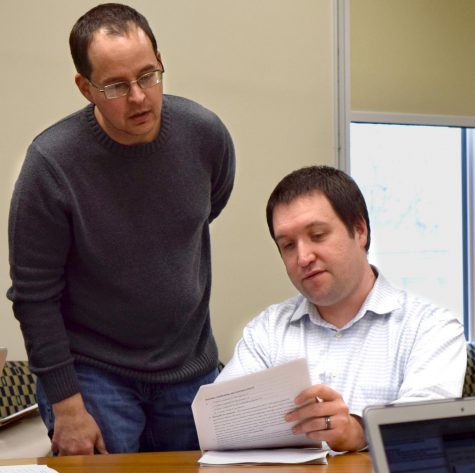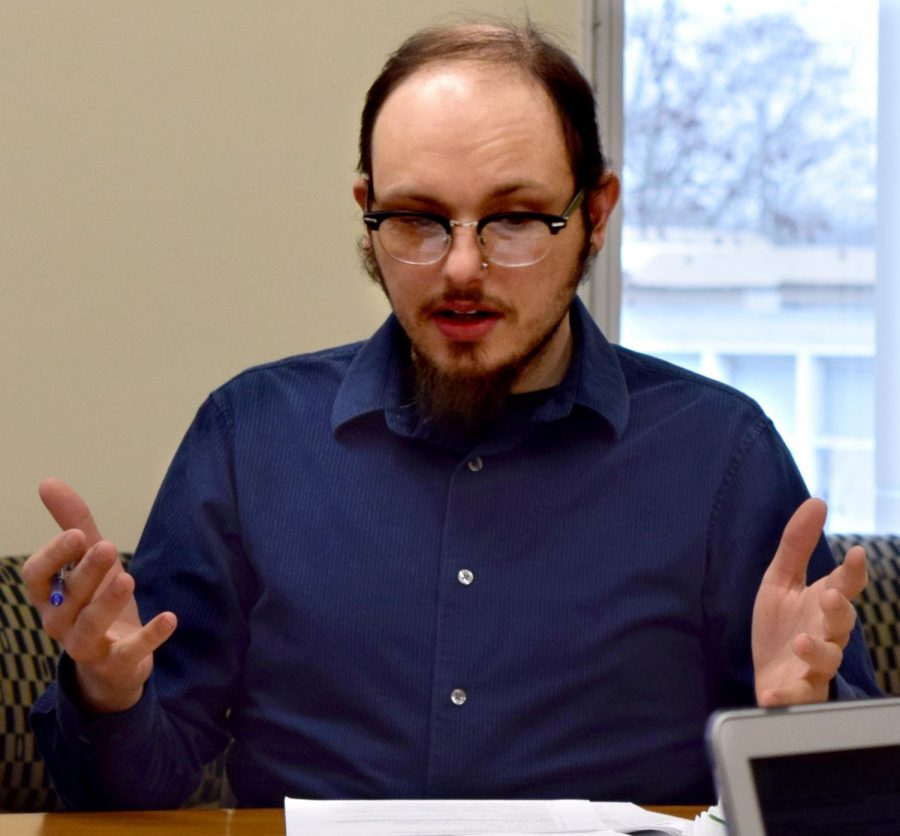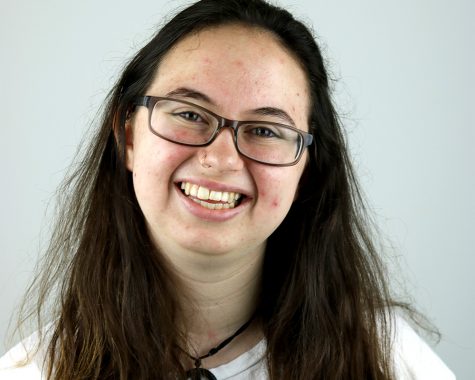CAA approves new radio minor
Scott Walus, a communication studies professor, presented four course revisions as well as a new minor to the Council on Academic Affairs Thursday afternoon in Booth Library. Walus said the first radio course at Eastern started in 1957 and was called “Radio Speaking to Prevent Mic Fright.”
February 23, 2018
Correction: In the original version of this story, math professor Marshall Lassak was misidentified. The News regrets the error.
Communication studies professor Scott Walus presented what he said were the first wave of changes for the department at the Council on Academic Affairs meeting Thursday.
Walus said the five proposals brought before the CAA are a part of a larger shift throughout the communication studies department.
“For the last couple of years, we’ve been in a major revision of our mass communication sequence, so that used to be called television, radio and film, and we’re kind of going back to that route right now,” he said. “We decided to break (the course proposals) up into two waves, because it’s a pretty big proposal and we don’t want to have a tsunami of curriculum.”
The proposals brought forward at Thursday’s meeting included the revisions of four courses, consisting of: CMN 2500 Production I, CMN 2550 Audio and Voice I, CMN 3050 Production II and CMN 3520 Audio and Voice II.
The CAA unanimously approved all the course revisions, as well as the addition of a new radio and audio production minor.
The minor was proposed to fit in with departmental, as well as cultural, changes, Walus said.
“The idea is the industry has changed a bit away from on-air personalities and radio programmers to needing to know how to do a lot of the audio production things, both online and offline,” he said.
Walus said the minor was designed to be low-credit hour so students with other majors could fit it in with whatever their main field of study is.
“There’s a lot of students who, maybe they’re majoring in business or kinesiology or history, but they have an interest in radio and film as well, so (the minor would be) a nice, complementary thing that they can do while they’re here at Eastern,” Walus said.
Mathematics revised five of its courses as well, including: MAT 1160G Mathematics, A Human Endeavor; MAT 1170G Problem Solving; MAT 3811, Rational Numbers and Proportional Reasoning for Middle Level Teachers; MAT 3812, Concepts of Algebra for Middle Level Teachers and MAT 3813, Concepts of Calculus for Middle Level Teachers.

Mathematics and computer sciences professors Marshall Lassak and Grant Lakeland double check the specifics on one of their course revision proposals at the Council on Academic Affairs meeting Thursday afternoon in Booth Library.
All the mathematics courses were updated to keep up with university or state standards. All proposals passed unanimously.
Two new journalism courses, JOU 1401 Journalism Forum and JOU 4401 Journalism Capstone were proposed and approved by the council.
Sally Renaud, the chair of the journalism department, said these additions are hopefully going to fill a gap in current student’s educations.
“We absolutely have to work on our skills for interviewing and the job hunt, we’ve discovered from our data,” Renaud said. “This will, we hope, provide some of that.”
The proposed journalism courses were unanimously approved.
11 items were added to the next meeting’s agenda.
Brooke Schwartz can be reached at 581-2812 or at [email protected].




















































